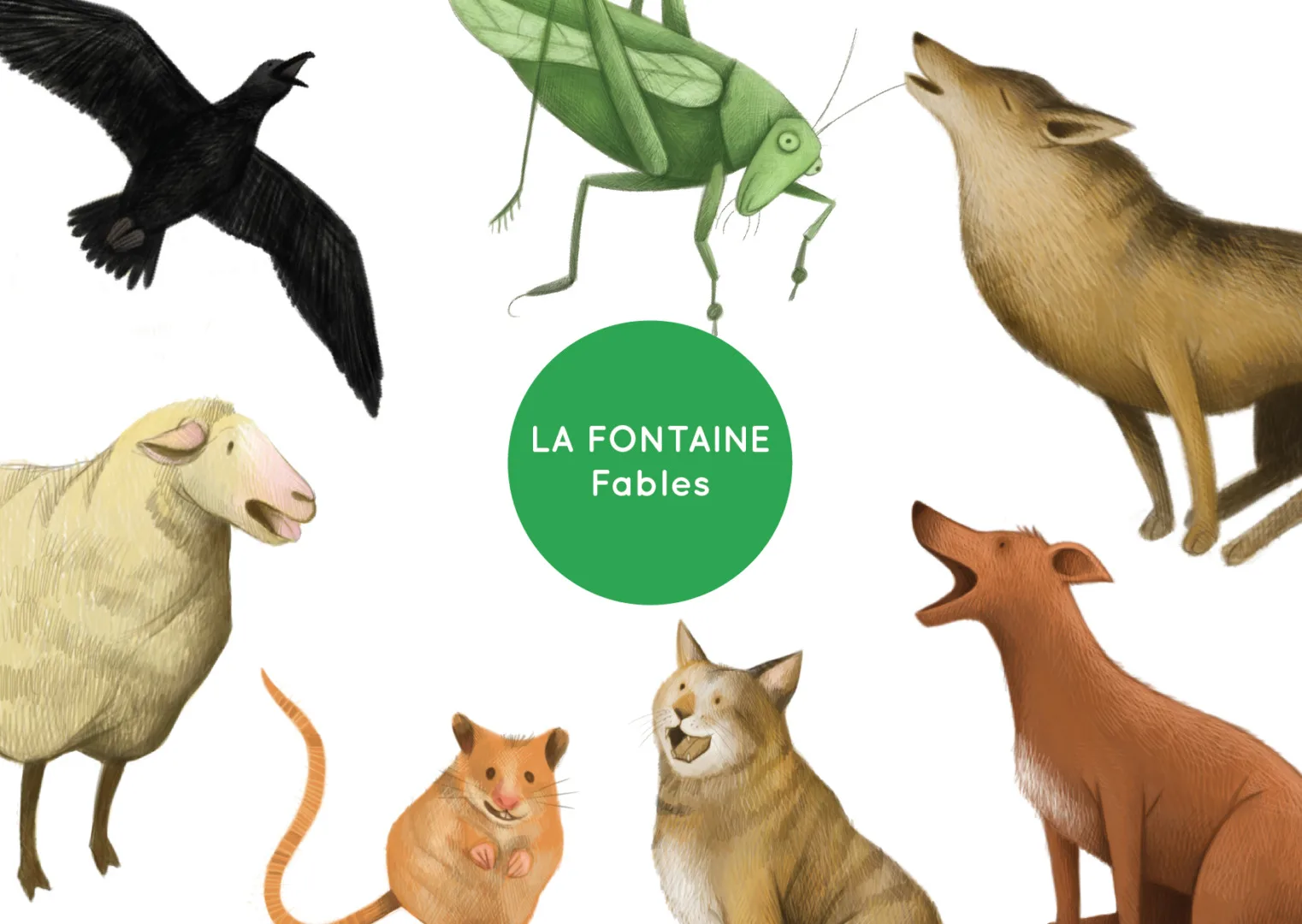For the 400th anniversary of the birth of Jean de La Fontaine, celebrated this year, Ocarina has produced a playlist containing 10 tracks between the most famous fables of the French poet. The audio project is available in three different languages: French, Italian and English. The texts translated from French have been produced in rhyme by Emilio De Marchi and Elizur Wright, two illustrious 19th century authors who helped bring La Fontaine’s work to the world.
Jean de La Fontaine lived in the 17th century and is still very well known today especially thanks to his Fables which have become a great classic of children’s literature. It is not a coincidence if the poet himself dedicated his work to the son of King Louis XIV and Marie-Thérèse, who at the time was seven years old.
Inspired by the tradition of classic fables of Aesop and Phaedrus, the Fables have as protagonists talking animals, symbols of the faults, vices and virtues of men: the turtle represents slowness and wisdom, the hare speed and superficiality. .. Animals embody the human characters of all eras and, in particular, of the world in which the poet lived: kings are proud and arrogant like the lion, the courtiers are as cunning and sly as the fox, many nobles are as fierce as the wolf and so on.
The Fables are all very short and are characterized by a dialogue composed of fluid verses, often free and irregular. And it is precisely this apparent “anarchism” which allows the poet to express his fantasy without diagrams, his irony, but also his great moral sense. Although the great French philosopher Jean-Jacques Rousseau considered La Fontaine’s fables to be unsuitable to children because too philosophical, perhaps, in reality, he did not fully understand its pedagogical function.
Each story is almost a play, a world apart where animals are the transposition of human characters, and it is in this world that children can get lost and immerse themselves while having fun.
In addition, each fable includes a few lines in which La Fontaine gives a sort of moral lesson, offering in this way a rational explanation and a better understanding – accessible even to the youngest – of the message and the teaching that it wants to convey.
If you want to buy the La Fontaine Playlist produced by Ocarina, you can go to the OcarinaDj audio section!








